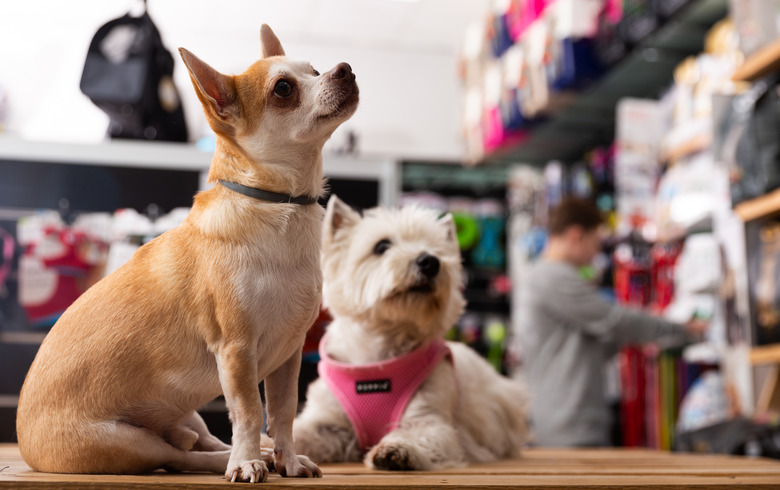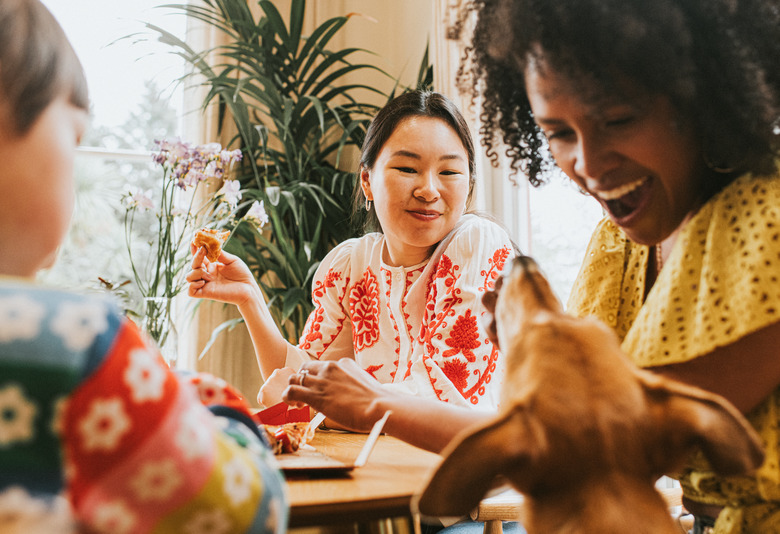Why Does My Dog Follow Me Everywhere?
If you live with a furry shadow following your every move, you may have asked yourself "why does my dog follow me everywhere?" Many people believe that this behavior occurs because dogs consider their owners the "leader" of the small pack they've formed together. However, studies suggest that it's more likely due to the positive associations that formed as a result of following humans.
Of course, there could be additional reasons explaining why your dog is following you around. Assessing personality, health, training, and your relationship may help you find some answers.
Why does my dog follow me everywhere?
Why does my dog follow me everywhere?
Dogs follow people around for a number of reasons. The most common one is that they relate good feelings to sticking close to their person. While their wolf ancestors are hunters who travel in packs, domesticated dogs are actually scavengers. The canines that we live with today descend from ancestors who, it is widely believed, self-domesticated by venturing close to human encampments to snag a bite of food. This holds true today as pet dogs know who will feed them. They will often follow that person around in the hopes of receiving positive reinforcement — be that in the form of food, a walk, or praise.
It's normal for dogs to feel comforted by their humans, with whom they have long histories of reinforcement and warm feelings. While the relationship we build with our dogs doesn't directly relate to that of a dog pack, dogs are still social animals. They rely on family members, other canine companions, or additional pets in the home, to meet certain needs — like food, comfort, and security.
Is it true that I’m the pack leader?
Is it true that I'm the pack leader?
No, it's not. In the past, many people have compared dogs to wolves, especially in regard to forming a "pack" with people. However, a study published in Frontiers, written by Arizona State University dog behavior expert Clive Wynne, suggests that this is where people make their first misstep. The fact is, domesticated dogs and wolves are not the same animals. Comparing our living situation to that of a familial wolf pack can do more harm than good if you don't consider the nuance that goes into it.
Wolves establish alpha, beta, etc... ranking positions because they rely on "social" dominance. This means that as hunting animals, they compete with each other for sex and food. They rely on the pack's order for survival.
Humans don't compete with our dogs for those things. So the strict enforcement of the so-called "alpha" human dog owner without a social group structure including subordinates working toward a common goal is unnecessary. It can even be abusive and confusing for dogs when used punishingly or through intimidation and physical force.
"Pack theory" and its oft-cited cousin "dominance theory" have long been debunked, and qualified professionals who work with dogs know this. If you're working with a dog trainer who relies on either theory, find a new trainer.
Could it be separation anxiety?
Could it be separation anxiety?
Of course, not all following is harmless. There are times when it may signify a larger issue. You've likely heard it described as a "velcro dog.". But, compulsive shadowing can be a sign that your dog is in mental distress or experiencing behavioral issues such as separation anxiety. This occurs when a dog display of extreme panic when left alone for even shorts amount of time.
Symptoms of separation anxiety can include shaking, salivating, and refusing to eat, and may result in destructive behavior like destroying furniture, loud vocalization, and even self-harm.
If you think your dog may be experiencing separation anxiety, it is strongly recommended that you begin dog training by finding a qualified, certified trainer in your area who is experienced in separation anxiety in dogs.
Is my dog being clingy?
Is my dog being clingy?
When observing dog behavior, it's tempting to use words like "clingy" or "needy" that describe how we feel the dog is acting. However, it's more productive and accurate to try to describe observable behaviors, rather than use generalized words.
Here are some examples of observable behaviors:
- My dog follows me to the bathroom.
- My dog follows me from room to room when I get up in the morning.
- My dog does not get up to follow me when it's nighttime.
You can see that these observations are specific and describable. You can write these down to tell your dog trainer, or simply note them to yourself. It can certainly feel annoying or like a dog is being clingy when they are following you from room to room, but being precise in your observations will help you and your trainer more accurately identify the issue at hand.
The bottom line
The bottom line
While dog owners certainly do build social dynamics and daily routines with their dogs, we do not live in or operate as a pack in the way that wild dogs or wolves do. For this reason, it's most likely that your dog is simply following you because of the positive associations they've built as a result of being around you, and the comfort you bring them. Boredom is also a possibility, as are behavioral issues like separation anxiety, which should be addressed by a qualified trainer.


